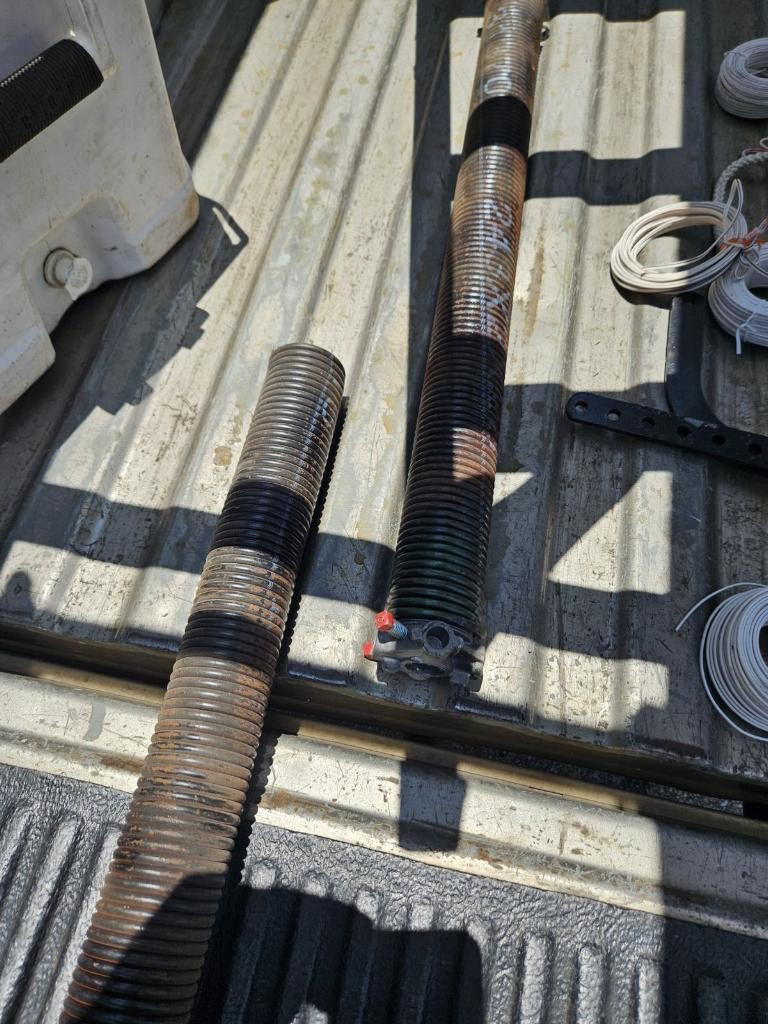
Garage door springs endure a lot of stress and strain, and for a few reasons, they can eventually break. The most common culprit is simply wear and tear. Garage door springs are rated for a certain number of cycles (opening and closing), typically around 10,000. Daily use adds up quickly, and if you use your garage door frequently, the springs can wear out faster than expected.
If you have never seen a broken spring, below you will find a picture of a broken spring and another picture of a working spring.
Another factor that shortens a spring's lifespan is lack of maintenance. Friction from a dirty track or rusty hinges can make the door harder to open, forcing the springs to work overtime. Regularly lubricating the moving parts of your garage door and keeping the track clear will help the springs operate smoothly and extend their life.
Rust is another enemy of garage door springs. Moisture can cause the metal to corrode, weakening the spring and making it more prone to snapping. This is especially a concern in Gulf Breeze FL and the surrounding coastal areas with the high humidity. Applying a silicone-based lubricant to the springs seasonally can help prevent rust and keep them functioning properly.
Finally, sudden impacts or extreme weather conditions can break a spring. A car accidentally bumping the door or a falling object can damage the spring. Similarly, constant exposure to moisture or large temperature swings can weaken the metal and lead to a sudden breakage. If you need a garage door spring repair it's important to call American Garage Door for repairs. Springs under tension can be dangerous, and replacing them is a job best left to someone with the experience and tools to do it safely.
Location: Gulf Breeze, FL